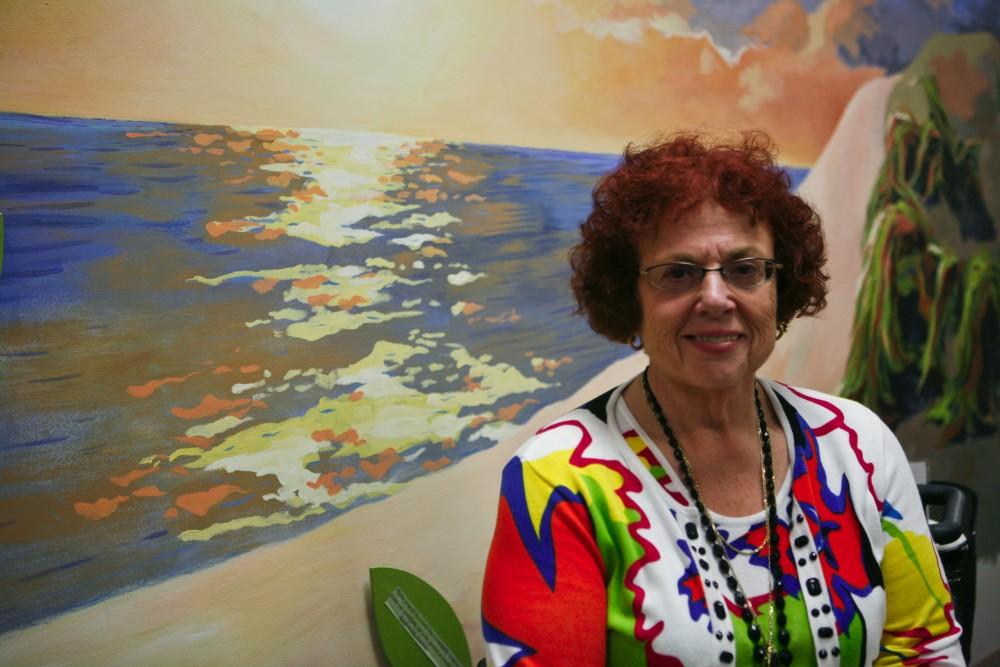Counseling Center to eliminate walk-in hours

GVL / Eric Coulter Director of the Counseling and Career Development Center Barbara J. Palombi
Aug 29, 2011
In an attempt to better serve a growing student clientele, the Grand Valley State University Counseling Center will no longer offer walk-in counseling hours for the upcoming year.
The change in policy follows a spike in the number of individual appointments being scheduled by students over the past five years, an increase that has been met with difficulty by the Counseling Center staff. More than 5,900 appointments were made in the 2005-2006 academic year, and that number rose to more than 7,700 in the 2009-2010 academic year.
With too many students utilizing walk-in hours instead of scheduling appointments, the Counseling Center is eliminating walk-in sessions to make more room for students who have made prior appointments.
In addition, previously unlimited individual sessions are now capped at six sessions per academic year, per student. However, students will still be able to attend an unlimited number of group therapy sessions and workshops.
“We just had so many students coming in that there was quite a few students that didn’t get help because we didn’t have any limits,” said Barabara Palombi, director of the Counseling Center. “That’s why in order to really be fair to all of the student body we really felt like we had to make some changes. When we have 2,000 additional appointment hours, that’s two to three more people required to take care of that.”
Palombi said most students visiting the Counseling Center aren’t there for long-term individual treatment, and past research indicates that six sessions is usually enough to make significant progress. She added that group therapy is more helpful to college-aged students than individual therapy sessions.
“Even though students are uncomfortable working in a group, they get immediate feedback from their peers, they get immediate feedback from their facilitator,” she said. “So in some ways, they get much better overall care than sometimes just individual.”
If a student feels they need additional counseling, Palombi said they may write a letter of appeal, stating what makes them believe they need more work and what kind of plan they had to help themselves get better. From there, she will pass the appeal on to the case review committee, which will collectively decide on whether to grant the student more sessions and continue to reevaluate from there.
“Faculty and staff understand,” she said. “Ninety percent of our students understand, they’re like, ‘Oh yeah, I can see why you’re doing that.’ Then, there’s some students that have been used to this, so they have expressed more concern.”
Faculty or staff with students who raise immediate concerns will still be able to contact the Counseling Center for immediate assistance. Students who feel as if they are in an immediate crisis situation – for example, having suicidal thoughts or have just experienced the death of a loved one – will also be able to contact the Counseling Center to speak with the office coordinator.
However, Palombi said students should still use discretion when evaluating whether or not they are in a state of immediate crisis.
“Let’s say, because you have a test coming up and you didn’t do well or something like that – it may feel like an immediate crisis to the person, but from our perspective it’s not a life or death situation,” she said. “But if it feels like a life or death situation, we will take care of students – they just need to call.”
Though questions have been raised about the possibility of the change turning away students who are not comfortable in group discussion, Palombi said in most cases, students who have a real need for help will seek it out one way or another.
She added the Counseling Center welcomes suggestions from students with any alternative ideas as how to provide students with better service. Currently, she said the center is working on adding more online services in addition to existing links to reading materials and self-assessments.
“I think our main concern is that we really are able to help students to be successful and to have the best educational experience that they can have,” Palombi said. “But if there’s other things we could have that they’ve seen, that they’ve heard their friends talk about; if they have suggestions I’m more than willing to hear them and see what we can do.”





















